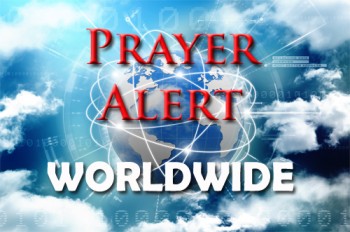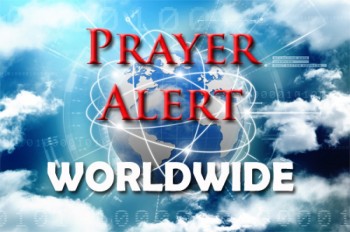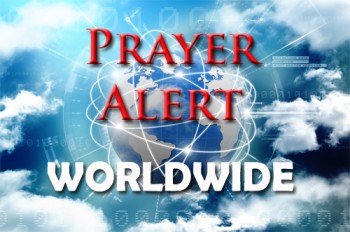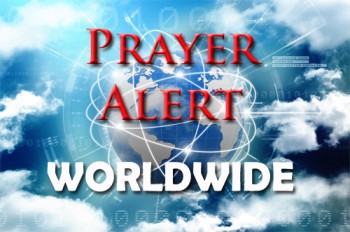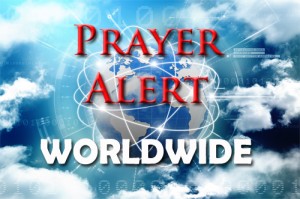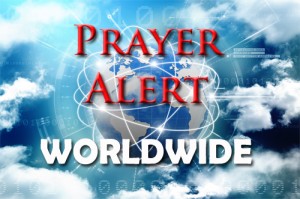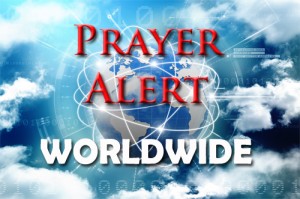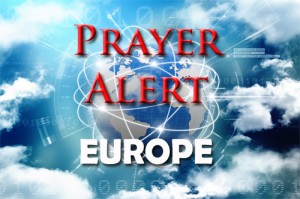Displaying items by tag: Democratic Republic of Congo
Democratic Republic of Congo: violence and epidemics
DR Congo is one of the ten poorest countries in the world, coping with violence, disease, hunger, and the mass displacement of people caused by years of civil wars and cross-border conflicts. Partly through impunity and political impotence, conflicts continually flare up in the border areas, and East Congo remains a hotbed of unrest. Measles is a highly contagious disease caused by a virus that attacks mostly children. Left untreated, complications include blindness, brain swelling, diarrhoea, and severe respiratory infections. Congolese health officials say that comprehensive vaccination programmes are the only way to stop the epidemic from spiralling out of control. Ill-informed opposition can derail such plans. Measles has killed 6,000 people in a year, but its severity is overshadowed by the world's second-biggest Ebola epidemic on record - killing over 2,230 so far. Although new infections have slowed recently, the WHO warns that the virus is likely to resurge.
Global: Five ongoing wars
Yemen - Five years of war between Iran-backed Houthi rebels and Saudi/US backed government forces have created the world's worst humanitarian crisis. This Iran-Saudi rivalry threatens to grow as Houthis increase rocket attacks on Saudi Arabia. Syria - Assad, aided by Russia and Iran, has won the war. But killings in Idlib Province continue. Libya - A UN-recognised Government rules in Tripoli. A rival government controls much of the east. Each side has oil fields within its territory and its own central bank in this civil war. 1,000+ have been killed and 1.3 million people need urgent humanitarian help. Democratic Republic of Congo –25 years of violence has displaced 4.5 million people. A new government has not brought peace. Armed groups wreak havoc in a conflict fuelled by access to lucrative mineral reserves. A year-old Ebola outbreak has been declared a Global Health Emergency. Afghanistan –Washington is currently trying to convince the Taliban to engage directly with the Kabul government. There is a report today of a new Taliban reconciliation initiative.
Uganda: Ebola in frightening phase
The Ebola outbreak in the Democratic Republic of Congo made the long-feared jump across borders with three cases confirmed in Uganda, including the death of a five-year-old boy. Concern has been mounting that this would happen, underscored by an increase in the number of cases in recent weeks. The World Health Organisation and Ugandan health authorities said the Congolese boy had travelled to Uganda with his family. The other two confirmed cases are the boy's three-year-old brother and his grandmother, 50. They are in isolation at a Ugandan Ebola treatment unit. Eight people who had been in contact with the family are being traced. The Congo outbreak is the second largest and second deadliest in history. The Wellcome Trust said, ’This epidemic is in a truly frightening phase and shows no sign of stopping any time soon.’ WHO is expected to come under pressure to declare an international health emergency.
Democratic Republic of the Congo: Ebola outbreak
The second-largest Ebola outbreak in history has killed 97 children, and 811 people have symptoms. ‘We are at a crossroads’, said a spokesperson for Save the Children. ‘If we don't take urgent steps to contain this, the outbreak might last another six months, if not the whole year.’ The fatality rate is currently 63%. There is misinformation in communities, and mistrust of medical responses is an urgent and real concern. People have disrupted funerals because they didn't believe the deceased had the virus. Aid workers are threatened because it is believed that they spread Ebola. ‘We must scale up our efforts to reach the vocal youth and community leaders to build trust and to help us turn this tide. Treating sick people is essential, but stopping Ebola from spreading is just as important.’ Children are at the greatest risk of dying.
Congo: Ebola crisis, rumours, violence
Ebola relief efforts by Doctors Without Borders are being hindered by violence and rumours. The outbreak began when a family, fearful of treatment centres, fled authorities to visit traditional healers. Healers keep few records of their patients, making it difficult to trace and break the chains of transmission. Before national elections on 30 December, opposition politicians exploited the crisis by spreading rumours that Ebola has been concocted by the government to kill people’, claiming that ‘thermo-guns aimed at people’s foreheads to take temperatures are weapons to steal votes’. In Beni and Butembo, where Ebola is worsening, and in Yumbi, where hundreds have been killed in ethnic Mai-Mai violence, people were not allowed to travel to polling stations to vote (see http://www.africanews.com/2018/12/26/drc-polls-ceni-says-no-election-in-beni-butembo-and-yumbi-cities-until-march/). Civilians don’t know who to trust, and fend off all outsiders. When police tried taking an infected baby to doctors, his grandmother threatened them with a machete. On 1 January volunteers from Samaritan’s Purse arrived in the region to help those who are fighting for their lives. Hundreds are already dead. See https://calgaryherald.com/news/local-news/samaritans-purse-sends-team-to-congo-to-help-fight-ebola-outbreak
Democratic Republic of Congo: UN concern before December elections
The UN has raised the alarm over fighting in eastern DRC, warning that the violence could hamper next month's elections. Leila Zerrougui, a UN special representative, said that three provinces were most at risk. ‘There is a potential for armed group interference in the elections’, she said at a UN security council meeting. The area has been troubled for decades by inter-ethnic bloodshed and militia violence, a crisis that has escalated this year. DRC is also battling the worst Ebola outbreak in its history. These factors cast a shadow over the country's ability to stage elections on 23 December to succeed President Joseph Kabila.
DRC: Ebola outbreak
The Democratic Republic of Congo is braced for a gruesome battle, this time against the deadly virus Ebola. Congolese authorities declared the outbreak in the northwest region on 8 May; so far three have died from the disease. The number of reported cases is 42, according to a World Health Organisation tally. A health ministry spokeswoman said that 5,400 doses of vaccine had arrived from Geneva; they would be kept in Kinshasa until refrigerated transport could be guaranteed. The WHO said the risk of the disease spreading was high, and announced it was preparing for the ‘worst case scenario’. Its chief executive visited the affected area last weekend, saying he hoped for a ‘better way out’ of the latest outbreak. On 16 May Oxfam pledged an initial £50,000 to fight the spread of the disease. Ebola is one of the world's most notorious diseases, being both highly infectious and extremely lethal. See also:
Switzerland: Congo aid conference
The Democratic Republic of Congo (DRC) boycotted a UN donor conference in Geneva that was seeking to raise £1.2bn for the country. Over 13 million Congolese need humanitarian aid. It is a catastrophic humanitarian crisis. Aid agencies say 4.5 million people have been forced from their homes by violence, hunger and instability. Tens of thousands of Congolese have sought refuge in western Uganda. DRC is rich in mineral and other resources, but is affected by armed conflicts, corruption and a political crisis. In the past two years, more people have been displaced in DRC than in any other country. Many believe the international community is ignoring the crisis, where two million children are at risk of starvation.
